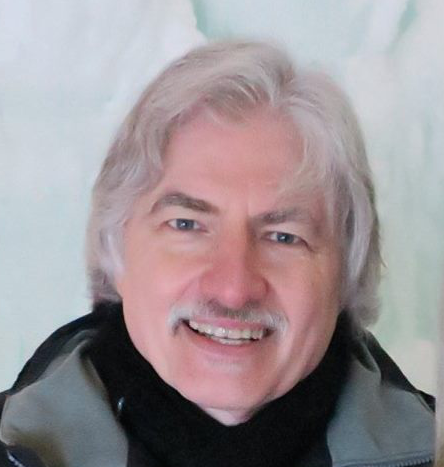The Avengers: Age of Ultron
Path to peace?
Set to become the year’s biggest blockbuster (and one of the highest-grossing films of all time), The Avengers: Age of Ultron has continued the world’s love affair with Marvel superheroes that began with Iron Man.
“You want to protect the world, but you don’t want it to change. There’s only one path to peace . . . your extinction.”
I watched the film in a full theatre and listened closely to the post-film comments made by the people in my vicinity. I heard not a single negative comment. People were thrilled; some even clapped. When I suggest that the masses are being thrilled and satisfied by 141 minutes of mindless and pointless violent action that has nothing new to offer and nothing of lasting value to contribute, I am greeted at best with blank stares; more often, people look at me with open hostility for being such a judgmental film snob.
So, now that you know where I stand, let me state up front that I enjoyed The Avengers: Age of Ultron more than I thought I would. This was due largely to the character of Ultron (the villain), who was played wonderfully and uniquely by James Spader, one of my favorite actors, and who was given most of the film’s best lines.
What follows contains minor spoilers, though a film like this has, in my opinion, no surprises and therefore can’t really be spoiled.
Ultron (the character) is a mechanical artificial intelligence created by two of the Avengers (nothing new in having the Avengers try to battle an enemy for which they are responsible). In this case, it’s Tony Stark (Iron Man) and Bruce Banner (the Hulk), our two resident-genius scientists, who decide that the best way to bring lasting “peace in our time” to our violent planet is to create an artificial intelligence to take care of Earth, allowing the Avengers to rest up or take a vacation.
The resulting Ultron wants to be the Earth’s savior, just as he was created to be, and his mission is indeed to bring lasting peace. The problem, for those living on the Earth, is that Ultron’s analysis leads him to conclude that lasting peace can only be attained by ridding the Earth of those most dangerous of life-forms known as humans. Leading the way in protecting those destructive humans are a group of monsters calling themselves the Avengers, so Ultron will have to get rid of them as well. “You’re all killers,” Ultron says to the Avengers. “You want to protect the world, but you don’t want it to change. There’s only one path to peace . . . your extinction.”
Given that a number of the Avengers in Age of Ultron refer to themselves as monsters, there seems to be some consensus emerging here. But no, while the Avengers do spend some of their action time fighting each other (due to the influence of a young woman who’ll become known as Scarlet Witch), they eventually focus their fighting energies on destroying their latest creation even when that creation is simply trying to save the planet from the scourge of humanity. That seems awfully unfair. Is it possible that Ultron is the true hero and the Avengers are the villains?
Alas, no, it is the Avengers (monsters though some of them may be) who are supposed to be the superheroes in this film, and they attack the poor villain and his robot minions with wild abandon. I suppose we should be relieved that most of the countless creatures killed (destroyed?) by the Avengers in Age of Ultron are lifeless robots, but the truth is that superhero films deliberately use aliens or lifeless creatures as enemies to make the incessant violent action more palatable and to avoid offending anyone.
To say I’m disappointed with Joss Whedon’s writing and direction of The Avengers: Age of Ultron is an understatement. I know he’s capable of better than this. Hidden in the film’s depths, there may be a subtle attempt to satirize the U.S. military-industrial complex, but it gets lost in the interminable, repetitive, boring, and mindless action and special effects that are the reason for the film’s creation, and apparently for its success. What Whedon could have done instead is used the film’s incredible popularity to say something provocative and make people think, like Dr. Strangelove did in 1964.
One missed opportunity is when Stark and Banner create another artificial intelligence to be the opposite of Ultron. Called Vision, this new A.I. is opposed to killing. That sounds good, but in Vision’s very first opportunity to face an enemy, he decides after all that in this case killing Ultron is his only course of action. How does that make Vision any different from Ultron, who, when asked why he killed someone, says: “Wouldn’t have been my first call. But, down in the real world we’re faced with ugly choices”?
The Avengers: Age of Ultron features a huge and talented ensemble cast (too many to be named here), all of who appear to be having fun. That’s good, and occasionally they are even given some interesting and/or funny lines, like when they argue about who among them is worthy. But the first Avengers film had more of that. Ultimately, I felt this film was a waste of time and talent and it makes me worry about the future of the film industry. Still, if we think of Ultron as the victim, and the Avengers, who have brought so much misery and mayhem to the planet (and then worked tirelessly to undo the damage they have caused), as the villains, maybe there is some potential for thoughtful discussion here.
The Avengers: Age of Ultron is rated PG-13 for intense sequences of sci-fi action, violence, and destruction. Can’t argue with that, though I fear our young people have long become desensitized to this kind of violence.




